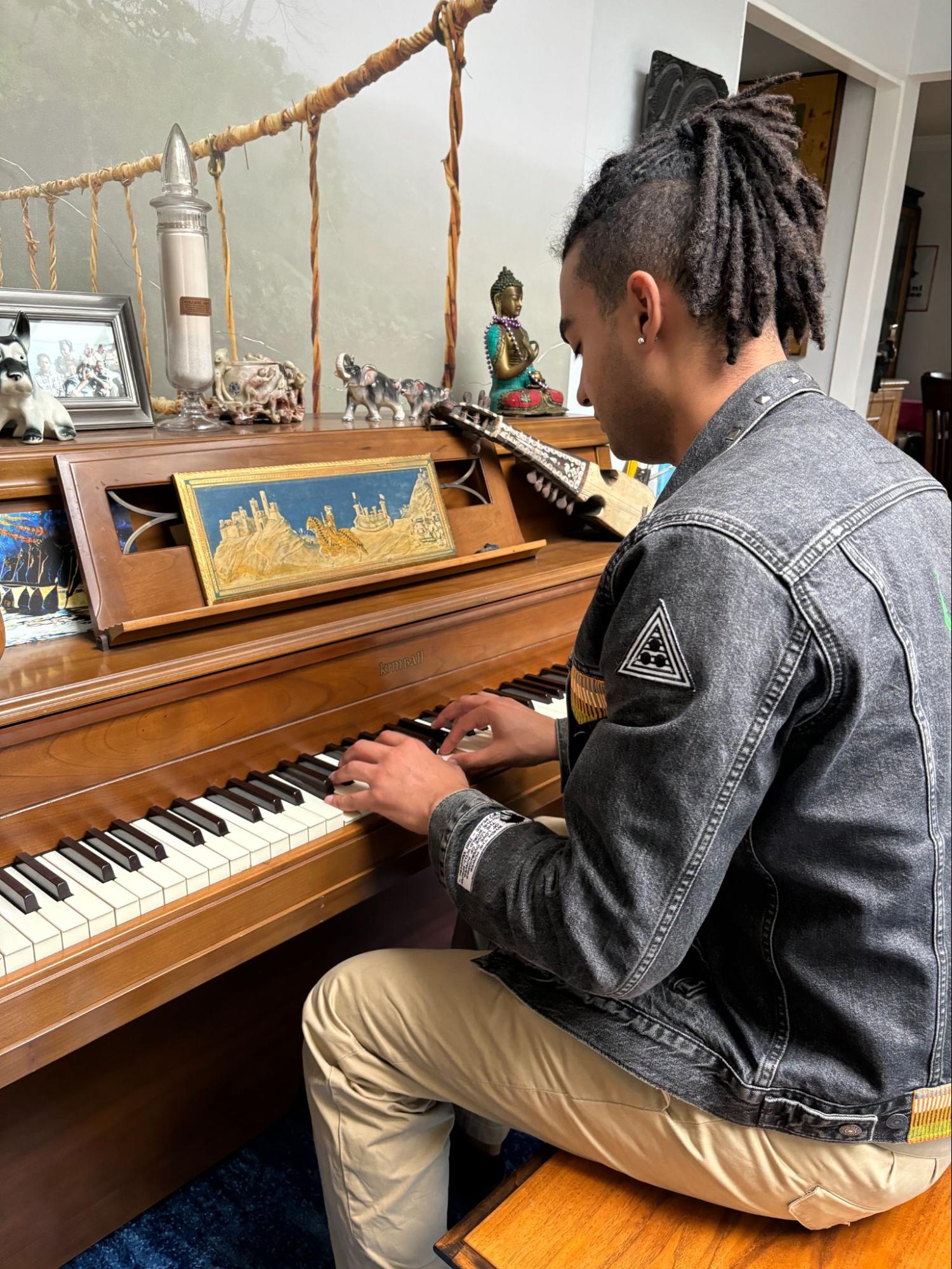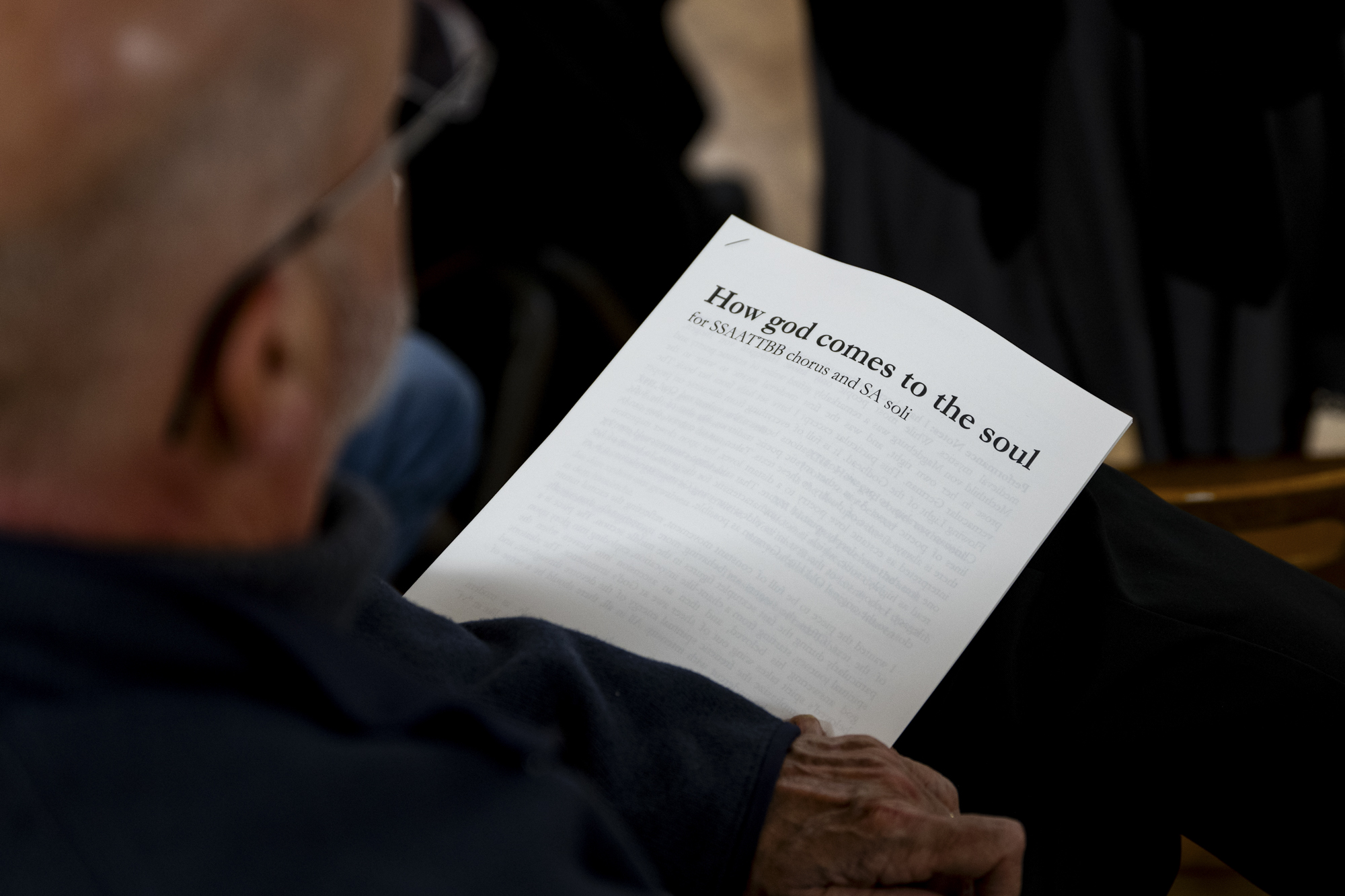“I was like, ‘Well, if I become a singer, then I’ll be cool. If I’m cool, that means girls will like me,” Ibsen says with a laugh. “And that’s all the motivation I needed as an 8-year-old.”
As a kid who had struggled to fit in socially, Ibsen soon found that the choir was one of the few outlets where he could be himself and feel good about it. It also helped that he was very good at it.

Several years later, at the age of 11, he got the opportunity to audition for the world-renowned Vienna Boys Choir.
“I don’t think I’ve ever been more nervous in my life,” he remembers.
He didn’t have any reason to be. Ibsen’s training with Ragazzi, not to mention his natural talent, prepared him well, and he was immediately offered a spot in the choir, becoming its first African-born member.
He packed up and moved to a palace in Austria, where the boys in the choir lived, went to school, and sang. Ibsen was excited and nervous about this big change in life, but he didn’t anticipate what he would encounter when he arrived.
“I’ve never experienced more overt racism than I did when I lived in Austria,” he says. “Everything I did was seen as alien and foreign. I was hazed the entire time I was there. So that was really, really difficult.”
After two and a half years with the choir, Ibsen came back to the Bay Area to start school at the Ruth Asawa San Francisco School of the Arts. Having heard a student was coming from a famous boys choir, incoming students started friending him on Facebook over the summer.
Unlike in Austria, he says, they were appreciative of what Ibsen would contribute to the school. It was a welcome change from the isolation he experienced in Vienna, and it was there that he first started composing music.
His first piece was for piano, one inspired by the Japanese video game Kingdom Hearts and its piano-forward score by composer Yoko Shimomura.
Ibsen’s path to metal music came by way of Japan as well. He grew up watching anime, and the ending theme of one of his favorite shows, Hunter x Hunter, was a song by the Japanese power metal band Galneryus.
Hearing that, along with music from other Japanese metal bands like Dir En Grey, was transformative, Ibsen says.
“Discovering them was sort of a moment like, ‘Oh, music can be like this,’ ” he says. “It also made me experiment as a vocalist more with my range because you have these metal guys singing notes that you never hear in opera.”
When it comes to writing music, Ibsen says he doesn’t wait for inspiration to strike. He likens the process to a daily routine, like remembering to turn off the stove at night.
“I’m very disciplined about writing. I sit down, and I set a chunk of time, and I just do it, and I revise it later until it’s perfect,” he says. “If you have something down, you can decide how you feel. But if you have nothing, you’ve got nothing, right?”
Ibsen has composed for ensembles as grand as a symphony and as stripped down as piano and voice. But these days, he says, almost every idea starts the same way — on his phone.
“I’ll often make voice notes or text notes or both. If you even read one of these notes, you’re not going to have any idea what it’s going to sound like,” he says. “It’s just enough for me to be able to recall what I’ve stored internally. So it’s more like I’m creating these verbal triggers for myself.”

From there, he’ll transfer the ideas into notation software on his laptop where he’ll finesse the compositions until they are complete.
“The material has to sort of live in my head for a while. And then the material tells me where it’s supposed to go,” he says.
In 2022, Jens won the second annual Emerging Black Composers award. The prize was the commission that ended up becoming “Drowned In Light.” He says that after experiencing such blatant racism in the Vienna Boys Choir, receiving this distinguished award years later, based in part on his race, elicited a complicated set of emotions.

“For a while, I felt cynical because it felt like I’ve been good this whole time. Why now?” he says. “But I look back on the cynicism and I have a little more empathy for myself because I can see that these people like me because they believe in my art.”
Ibsen says he hopes his experience can inspire musical institutions to continue to support the work of other artists pushing the boundaries of music.
“We need to keep this energy for composers of all kinds of marginalized backgrounds.”
This story has been updated to correct a mis-identification of the professional San Francisco choir Volti.









